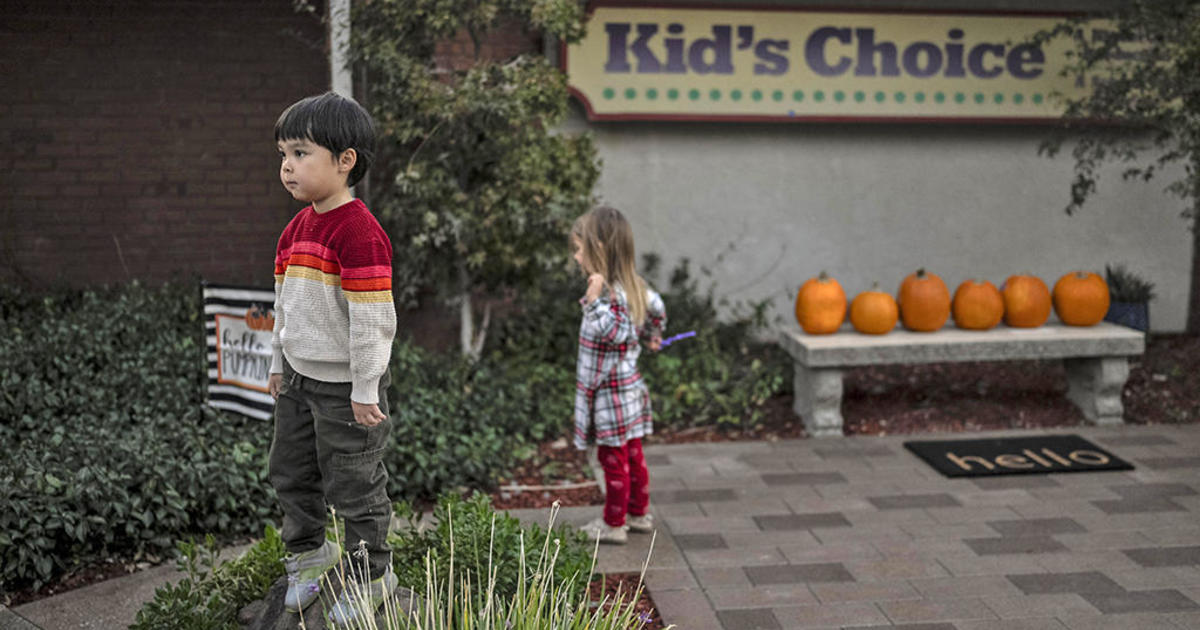South Bay Officials Call on Private Healthcare Providers to Ramp Up COVID Testing
SAN JOSE (KPIX) -- As Santa Clara County logged another record day of COVID-19 cases amid the current omicron-fueled surge, officials warned private healthcare providers that they need to pull their weight when it comes to testing.
Santa Clara County Counsel James Williams on Friday threatened to fine two of the region's largest private healthcare providers -- Kaiser and Palo Alto Medical Foundation -- for not providing enough COVID-19 tests.
Williams pointed to data that showed the county disproportionately provides the majority of tests.
Santa Clara County provides healthcare to 15% of county residents, but conducts 20% of all COVID-19 testing.
Kaiser provides healthcare to more than 30% of county residents, but only conducts 12% of all COVID-19 testing.
PAMF provides healthcare to 16.5% county residents, but only conducts tests 2.4% of all COVID-19 testing.
Healthcare providers are required by law, under the September 16, 2020 health order, to provide prompt testing. Williams encouraged any potential violations to be reported to SCCcovidConcerns.org.
"That means if you are symptomatic or (had) a close contact, and you have tried to get access to testing from your healthcare provider, but were told it's not available for a week, or were told to go somewhere else, or were directed, for example, to the county health system. Those would be violations we want to hear about," said Williams.
Kaiser later contacted KPIX to provide a statement regarding testing. That statement read in part:
"Kaiser Permanente and our teams are working hard on testing, administering vaccines, and caring for our members and the people in our communities who need treatment, including hospitalization. Weekly, we are currently processing more than 140,000 tests here in Northern California, and administering more than 80,000 vaccine injections, while caring for an increase in patients who are sick with this virus. The highly contagious nature of this variant and its ability to infect even some who are fully immunized is challenging everyone, including those of us in health care. We are seeing significant staff illness as a result – similar to what is happening in the community.
We object to any suggestion that our front line health care workers are not doing their fair share. We are baffled by the county's suggestion that anyone is holding back."
Public health officials with the county also issued updated guidance on testing options.
If a patient tests positive with an antigen, or an over-the-counter at-home test, there is no need to "confirm" the result with a PCR test at a healthcare facility or county facility.
For patients who are positive and ready to emerge from quarantine, an antigen test should be used. A PCR test is not recommended in this instance, since it is high sensitivity is likely to detect trace amounts of virus in the patient's system and provide a false positive result.
The county advises Individuals who are symptomatic can take either a PCR or antigen test.
For those who have had a confirmed, close-contact exposure, a PCR is preferable.
"In addition, people who have previously tested positive within the past 90 days should not get tested again during that time frame unless they have new symptoms – in which case they should use an antigen test," according to a county press release.
"Testing opportunities are not unlimited, and we want to make sure tests are being used when and where they are most needed," said Santa Clara County Public Health Officer Dr. Sara Cody.
This week, Sonoma County announced it would be prohibiting large indoor gatherings of 50 people or more. Dr. Cody on Friday said she had no plans of issuing such a similar order.
"I would avoid large gatherings that would be my recommendation not a mandate but my recommendation," said Dr. Cody.
Some positive signs can be found in Santa Clara County's wastewater data. Since December, the county began regularly testing sewage for evidence of the omicron variant. The count peaked on January 7, leveled off, and has been declining since January 10.
"We're not out of the woods yet," said Dr. Cody. "But I wanted to provide a glimmer of hope."



